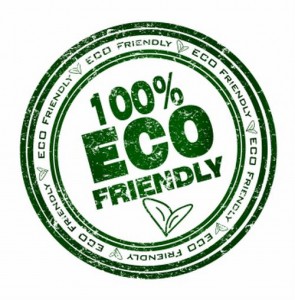
So, you want to choose wisely, but you’re well aware that businesses can profit by calling something ‘green’ and putting the price up. It’s important to ask the right questions before handing over your money.
Let’s unpick some of the most common claims:
‘Biodegradable’
Great, but is ‘biodegradable’ necessarily better for the environment? Biodegradable products are not always home compostable, and if biodegradable products end up in landfill, they will give off greenhouse gases. They also cause problems if they get into the recycling. And to assess the impact of a product, we need to consider its whole life cycle – so how was the biodegradable product made, and how were the materials for it sourced?
‘Environmentally Friendly’
What does this mean? Compared to what? Everything we consume has some kind of impact. Anyone selling something with that claim should be able to explain how it’s better for the environment than the alternative.
‘Ethical’
This is a vague self-description which means different things to different people. Are they referring to their entire business model, or just one or two aspects of it? If so, which ones, and do they provide clear policy statements on these?
‘It’s what the public/our customers are telling us they want.’
A favourite of both politicians and businesses. Sounds great, although it is not the same as ‘we reviewed the evidence and found that this was the best thing for the environment.’ And they know that.
‘Locally grown/organic/sustainably sourced
There can be many social and environmental benefits to locally-grown food. It probably involves fewer food miles, for example. But it’s possible to be locally grown and also produced in a way that harms the land and spews out greenhouse gases. Environmentally friendly food growers should have clear policies on things like soil conservation, minimising the use of synthetic fertilisers and pesticides, conserving biodiversity, and reducing greenhouse gas emissions in the way the food is produced, not just in the way it is transported.
For larger businesses, you can expect this to be independently certified. The Soil Association, Rainforest Alliance and EU Organic labels set standards for environmental protection, and the Forest Stewardship Council and the Marine Stewardship Council set standards for sustainable forestry and fishing. The RSPCA mark ensures that farm animals are cared for to certain standards.
For smaller businesses it gets more tricky, especially if it the product is sourced from overseas, because the process of getting certified is often more expensive than small businesses can afford. In this case it may not be possible to know for sure whether a product has been produced to certain standards. If the business is very small, such as a producer you meet at a farmer’s market, you may be able to talk to them directly about the way they produce food.
‘Natural’
This means almost nothing. Have you ever noticed how the word ‘natural’ is almost always used to sell products that have been through many stages of processing? Calling something ‘natural’ is often a red flag that it is anything but.
‘No nasty chemicals’
It’s fair to ask: specifically which chemicals have been avoided, and why? The product must be made from something, so how is it better for health/the environment than the alternative? It takes a lot of expertise to assess the impact of different substances on human health and the environment, so is whoever is making this claim qualified to do so?
‘Plastic-free’
A popular claim, but what is used instead of plastic, and what evidence is there that this is better for the environment? This is a red flag that a business has jumped on the proverbial bandwagon without a serious assessment of its environmental footprint.
‘We believe’
Used in both product marketing and politics – ie ‘Here at our friendly eco-business, we believe that natural is best,’ or ‘in our party, we believe that policy x is the best way to achieve these goals.’ OK, but what evidence is this based on?
